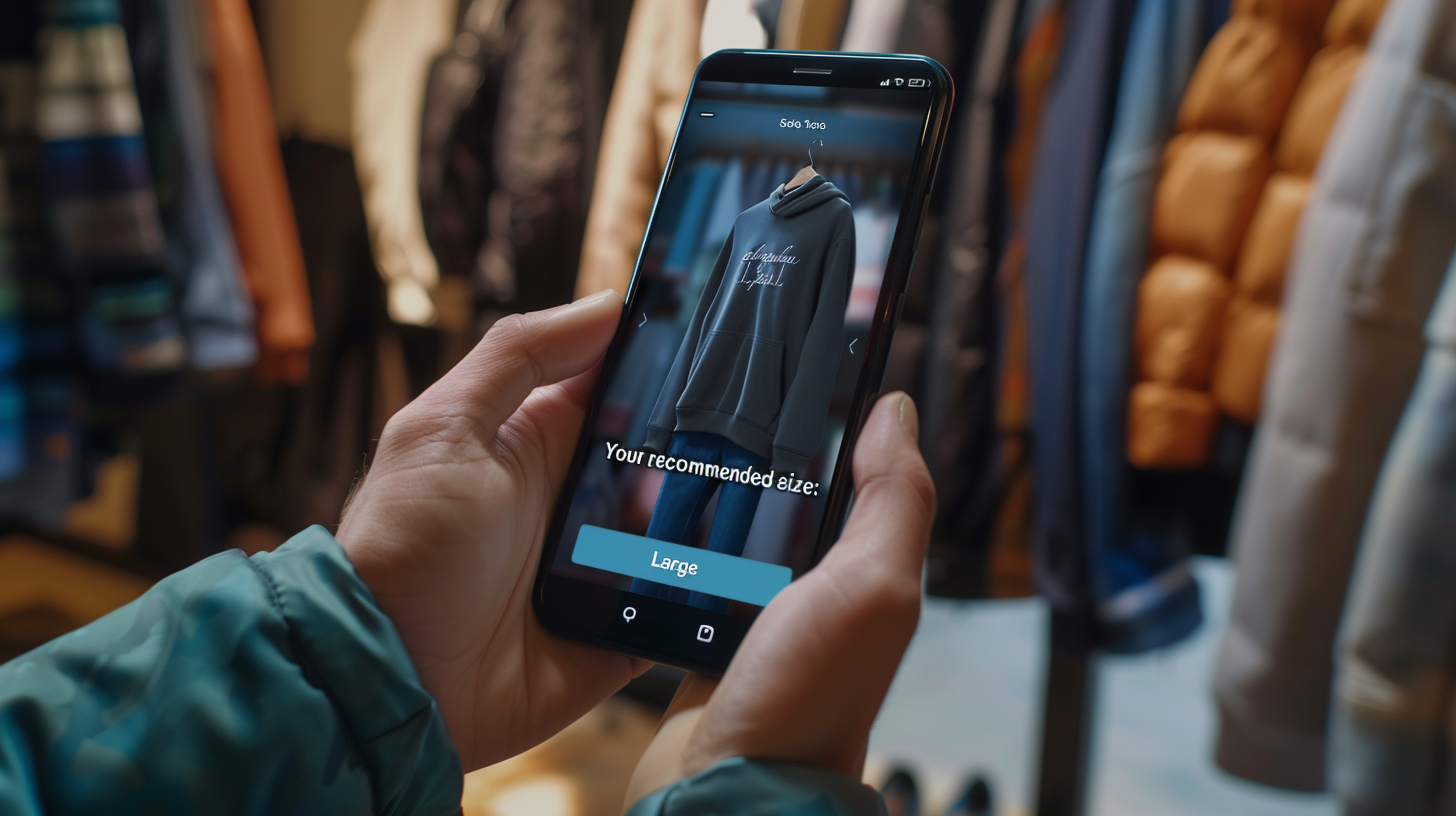
The Rise of Sustainable Shopping During Q4
Holiday shopping is evolving beyond finding the perfect gift—it's now about making ethical and sustainable choices. A recent McKinsey study reveals that 57% of holiday shoppers prioritize sustainability in their purchasing decisions. Apparel brands aligning with these values by reducing waste and offering eco-conscious options can tap into this growing demand.
One key way to support sustainability is by addressing a critical issue: apparel returns due to poor fit. These returns not only affect profits but also contribute to unnecessary carbon emissions. By implementing effective sizing technology, brands can reduce return rates and create a more sustainable shopping experience.
Reduced Returns for a Lower Carbon Footprint
One of the most significant challenges apparel brands face is managing return rates, especially during the holiday rush. With consumers increasingly buying online, fit-related returns can negatively impact both operations and the environment. By adopting AI-powered sizing solutions, brands can minimize returns, decreasing the carbon footprint associated with shipping and waste.
A Personalized Shopping Experience
Sizing technology not only helps brands reduce returns but also improves the overall customer experience. By offering personalized sizing recommendations, customers are more confident in their purchases, leading to fewer returns. This personalized approach directly addresses a growing consumer desire for ethical and convenient shopping, making it a win for both sustainability and profitability.
Simplifying Holiday Shopping for Others
Holiday shopping often brings the added challenge of finding the perfect size for someone else. According to a survey from Shopify, 40% of holiday shoppers report frustration when it comes to choosing the right size. This uncertainty frequently results in bracketing, where shoppers buy the same item in multiple sizes to ensure fit. This approach increases return rates significantly, creating additional strain on logistics and the environment. In fact, return rates can reach 30% during the holiday season, with sizing issues being one of the top reasons for returns.
Sizing technology offers a solution to this challenge by providing accurate size recommendations based on the recipient's body measurements and fit preferences, even when shopping for someone else. This technology eliminates the guesswork, making it easier for gift-givers to confidently select the right size and avoid the hassle of returns. Not only does this improve the customer experience, but it also helps reduce the carbon footprint associated with unnecessary returns.
By incorporating AI-driven sizing tools, brands can transform the holiday shopping rush into a more seamless, personalized, and eco-friendly experience, reducing both shopper anxiety and the environmental impact of returns.

Conclusion: A Win-Win for Business and Environment
In the competitive landscape of holiday shopping, apparel brands must find ways to reduce their environmental impact while offering a seamless customer experience. AI-powered sizing solutions provide a unique way to address both challenges. By reducing returns, boosting shopper confidence, and aligning with sustainability values, brands can drive customer loyalty and stand out this holiday season.
Want to explore how to integrate sizing technology into your business? Download our Fit & Sizing Technology Buyer's Guide today to learn how to enhance both customer satisfaction and sustainability in Q4 and beyond.
Sources:
- National Retail Federation. (2023). 2023 Consumer Returns in the Retail Industry. https://nrf.com/research/2023-consumer-returns-retail-industry
- FreightWaves. (2023). Returns Are Causing a Holiday Hangover for Retailers. https://www.freightwaves.com/news/returns-are-causing-a-holiday-hangover-for-retailers


.png?width=600&height=408&name=march%202023%20-%20french%20toast%20(1).png)

.png?width=1080&height=1080&name=Bold%20Metrics%E2%80%99%20digital%20twin%20technology%20helps%20some%20of%20the%20worlds%20biggest%20bands%20increase%20conversion%20and%20AOV%2c%20reduce%20returns%2c%20optimize%20their%20customer%20experience%2c%20and%20boost%20brand%20loyalty.%20(2).png)




%20(3)-1-1.png)



